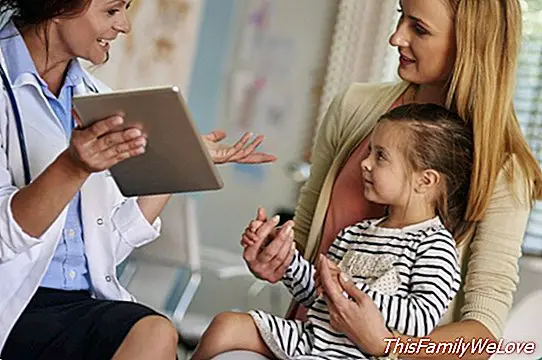Pediatric emergencies: how to make good use of them

More and more cases in which many parents go to the emergency room without a cause that really requires these services. First-time parents, worried about a cough, a cold ... Different sources suggest that more than half of the visits to pediatric emergencies could be attended in a visit to the usual pediatrician. So that these services do not collapse, it is essential to make good use of these emergencies.
You have to assess the situation and make a decision. It is also important to be well informed because if we are not sure how serious it is, we can call the Pediatric Emergency Service. This number is usually held by insurance companies and is open 24 hours a day.
Nobody better than your pediatrician knows the health and history of the child so it is preferable that if you have a cold or a few tenths of a fever, let's wait and make an appointment with the pediatrician.
When to use the emergency service
Every time a child is sick or has some type of injury, it is necessary to decide how serious the problem is and whether he should receive immediate medical attention. This will help us decide if it is best to call the doctor, go to the emergency room or make an appointment with the usual pediatrician.
In addition, it is necessary to assess the possible risks to which the child is exposed to go to the emergency room. When going to a hospital or health center, we are exposing the child to multiple germs.
On the other hand, going to the pediatric emergency room without having a truly urgent cause leads to children who really need that urgent attention have to wait much longer.
Advantages of going to the usual pediatrician's office
1. Global vision: the pediatrician has a comprehensive vision and with greater perspective of the child's health. It takes your medical history and therefore knows thoroughly the medical details of the child.
2. Close attention: The continuous treatment allows the attention to be accelerated and a relationship of trust is created that is very important for the tranquility of the parents on multiple occasions.
3. Ensures continuity in attendance: The monitoring of a health problem by a single pediatrician facilitates the decision making of the health professional. It offers tranquility to the family that in other circumstances may receive discrepant information about the diagnosis or treatment.
4. Prevention: the attention is directed to an early detection of diseases and to the promotion of healthy life habits. In addition to the treatment of the specific problem presented by the child, the pediatrician offers guidelines and preventive advice.
María Rojas Sanabria




